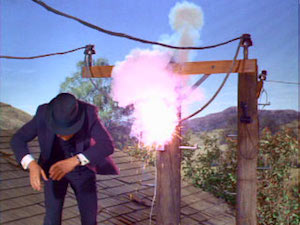
You’re wireless now.
The official vote tally for assembly bill 2395 has been posted. That’s the bill that would let AT&T shut down its wireline networks in rural and inner city areas and replace them with lower capacity but higher cost and higher profit margin wireless systems. It was clear from listening to the audio feed that a big, bipartisan majority of the California assembly utilities and commerce committee favored the bill, but the rules allow votes to be silently added to the roll, or even changed, before the meeting officially ends. So it wasn’t clear at the time how it ended.
Ten assembly members voted for it, three opposed it and two didn’t cast a vote. The yes camp included chairman Mike Gatto, who seemed sure, well, pretty sure, that AT&T would keep its copper lines. It also included Bill Quirk (D – Hayward), who carried last year’s AB 57 for AT&T – that’s the one that put a tight shot clock on local review of cell sites – and this year’s AB 2130, which writes a $100 million check on the taxpayers’ account for, primarily, AT&T.
Opposition came from Brian Dahle, a republican who represents the rural and remote northeastern corner of California, Roger Hernandez, a West Covina democrat with strong labor ties – AT&T’s unionised workforce vehemently opposes the bill – and Mark Stone, a democrat from Santa Cruz who is carrying a competitive broadband infrastructure funding bill – AB 1758 – that AT&T doesn’t like so much.
Another wrinkle in California assembly rules means that the exact text of the bill approved by the committee hasn’t exactly been written yet – the published version was first verbally modified in line with a staff analysis and then other vague provisions were batted about during the meeting. The release of new draft language will be the next shoe to drop on what AT&T hopes will be a quick march out of less profitable communities in California.
I’ve advocated for and helped to draft AB 1758 and its predecessors. I’m involved and proud of it. Take it for what it’s worth.
